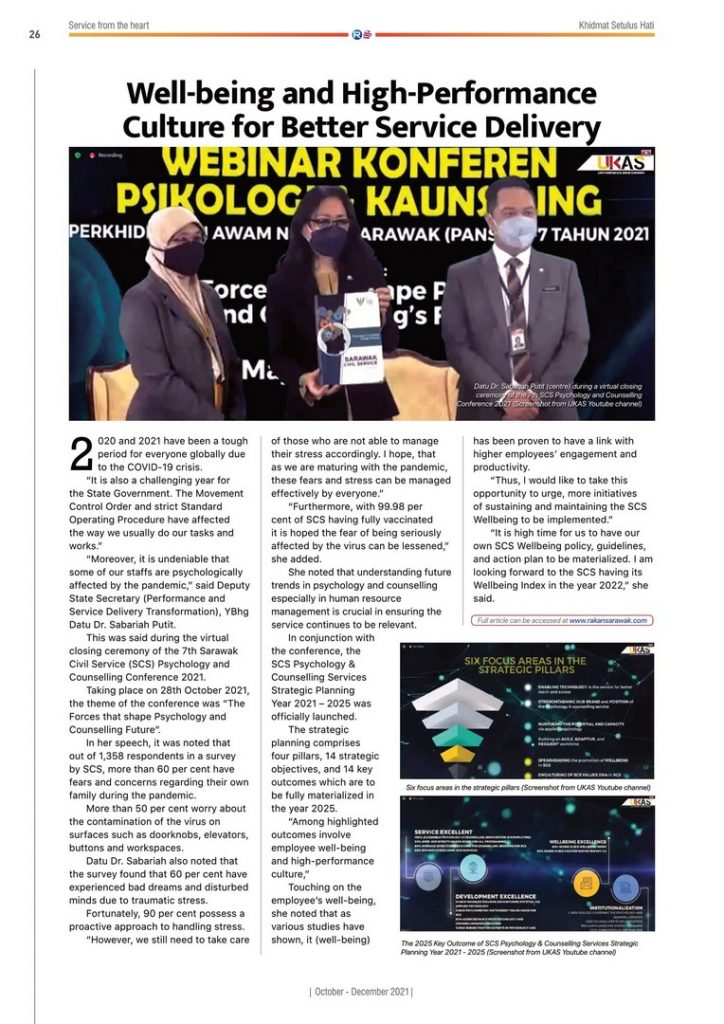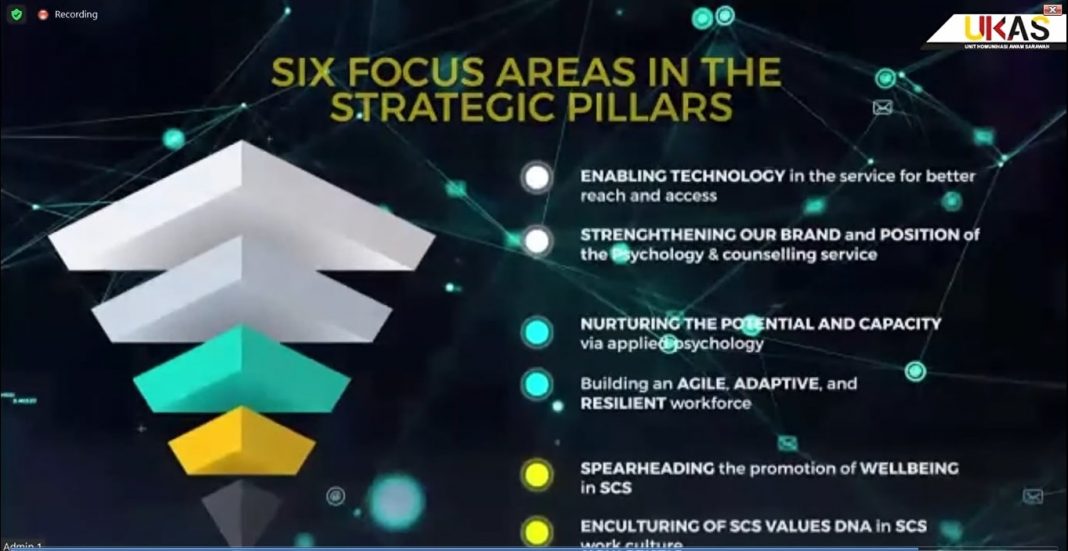– dipetik dan disesuaikan daripada keluaran RAKAN Sarawak October-December 2021 –
The year 2020 and 2021 has been a tough period for everyone globally due to the COVID-19 crisis.
“It is also a challenging year for the State Government. The Movement Control Order and strict Standard Operating Procedure have affected the way we usually do our tasks and works,”
“Moreover, it is undeniable that some of our staffs are psychologically affected by the pandemic,” said Deputy State Secretary (Performance and Service Delivery Transformation), YBhg Datu Dr. Sabariah Putit.
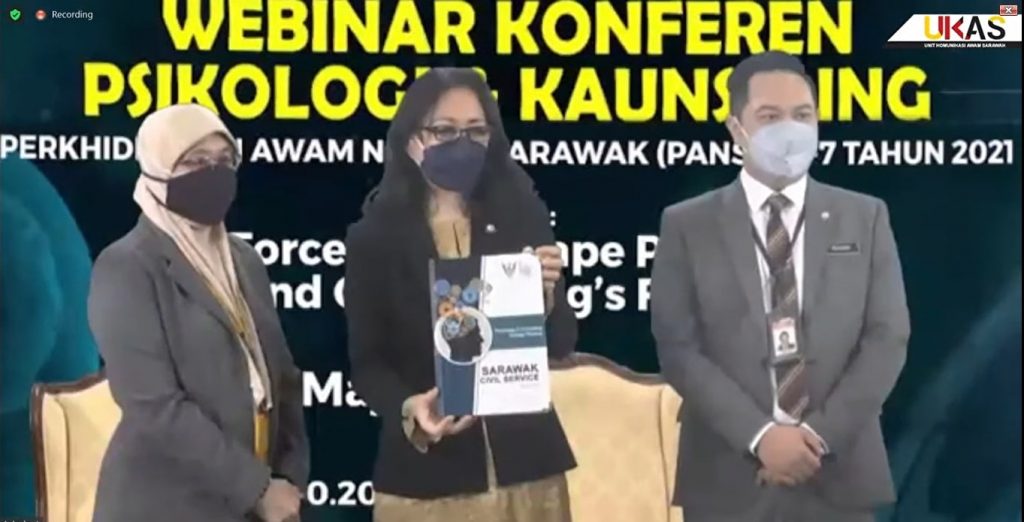
This was said during a virtual closing ceremony of the 7th Sarawak Civil Servant (SCS) Psychology and Counselling Conference 2021.
Taking place on 28 October 2021, the theme of the conference was “The Forces that shapes Psychology and Counselling Future”.
In her speech, it was noted that out of 1,358 respondents in a survey by SCS, more than 60 per cent are afraid regarding their own and family during the pandemic.
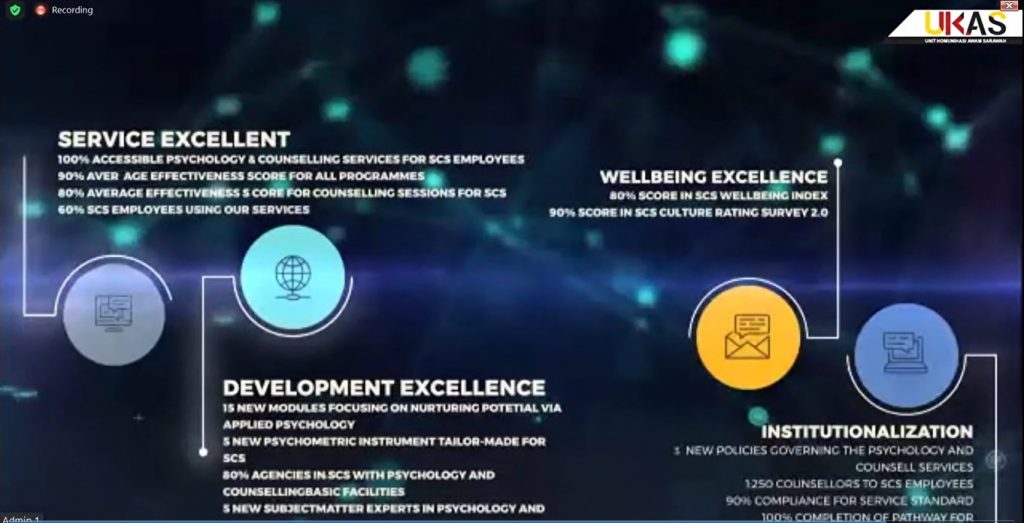
More than 50 per cent worry about the contamination of the virus on surfaces such as doorknob, elevator, button and workspace.
Datu Dr. Sabariah also noted that the survey found that 60 per cent have experienced bad dreams and disturbed minds due to traumatic stress.
Fortunately, 90 per cent possessed a proactive approach to handling stress.
“However, we still need to take care of those who are not able to manage their stress accordingly. I hope, that as we are maturing with the pandemic, these fears and stress can be managed effectively by everyone,”
“Furthermore, with 99.98 per cent of SCS having fully vaccinated it is hoped the fear of being seriously affected by the virus can be lessened,” she added.
She noted that understanding future trends in psychology and counselling especially in human resource management are crucial in ensuring the service continues to be relevant.
In conjunction of the conference, the SCS Psychology & Counselling Services Strategic Planning Year 2021 – 2025 was officially launched.
The strategic planning comprises four pillars, 14 strategic objectives, and 14 key outcomes which are to be fully materialized in the year 2025.
“Among highlighted outcomes involve employee wellbeing and high-performance culture,”
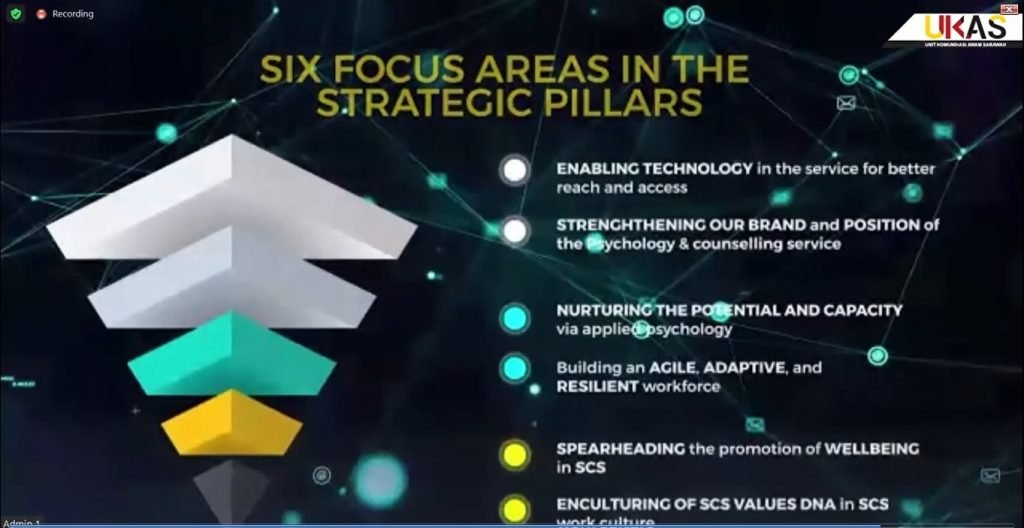
Touching on the employee’s wellbeing, she noted that in par with research and studies, it (well-being) has been proven to have a link with higher employees’ engagement and productivity.
“Thus, I would like to take this opportunity to urge, more initiatives of sustaining and maintaining the SCS Wellbeing to be implemented,”
“It is high time for us to have our own SCS Wellbeing policy, guidelines, and action plan to be materialized. I am looking forward to the SCS having its Wellbeing Index in the year 2022,” she said.
In tandem, the rigorous effort to embody High Performing Culture in SCS should as well be highlighted.
She noted that High-Performance Culture promotes idea generation and leadership that encourages employees to take ownership in their everyday performance of their roles.
“In ensuring excellent service delivery, High-Performing Culture is to be practiced and cherished by every level of the SCS workforce and not only leaders, as we are looking to sustain the culture towards achieving our vision which is the World Class Civil Service,” said Datu Dr. Sabariah.
She also added that the Managing Culture Change is currently developing SCS Value Index in which is to be fully implemented in the year 2022.
The index generated by SCS Value Index will be used to formulate and implement more strategic and specific initiatives and interventions as well as to improve the enculturation of SCS Six Shared Values among SCS.
